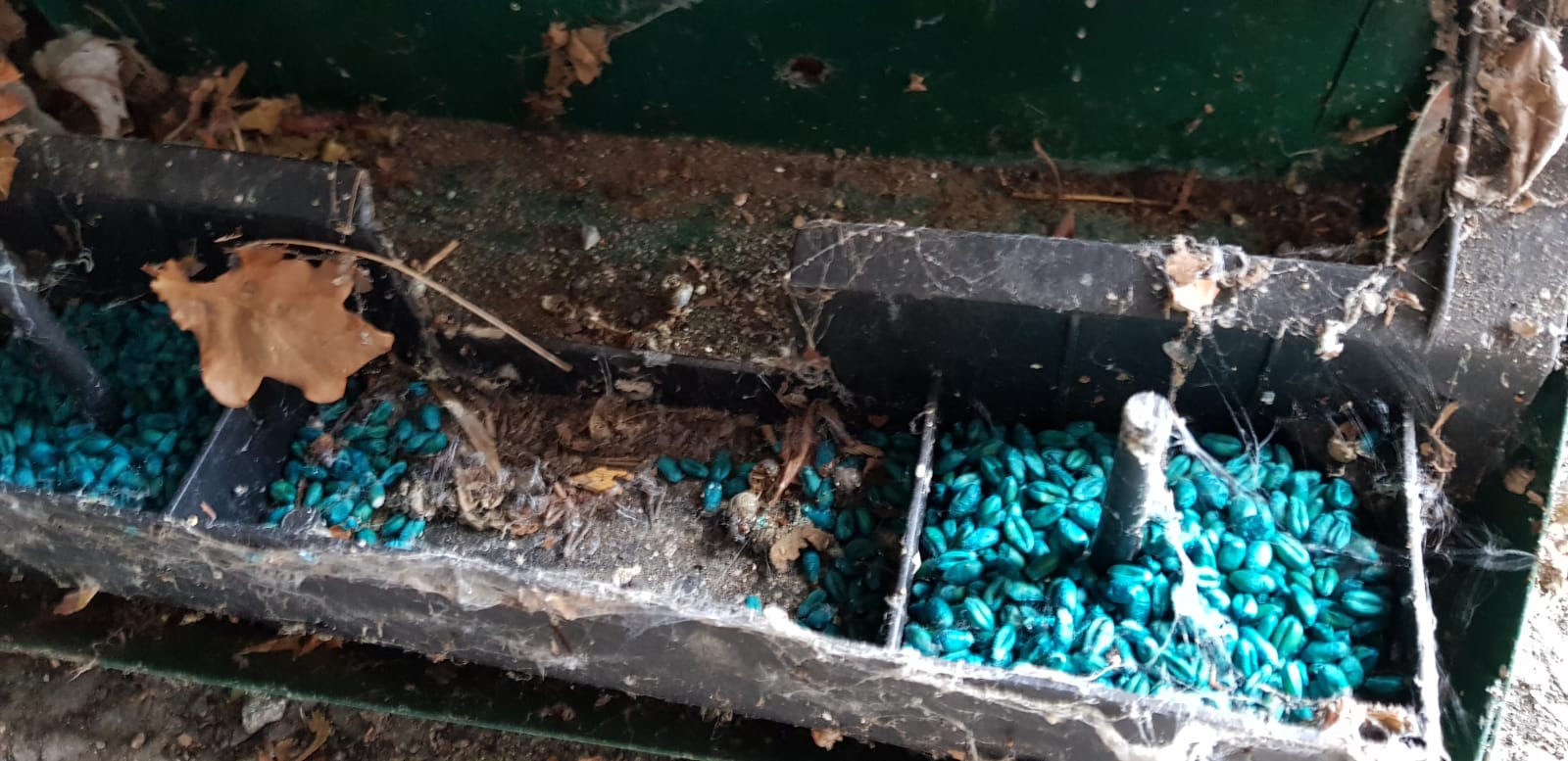
Why we sometimes hate the bait…
In December, we published an article to spread awareness about changes to rodent control legislation. Finally catching up with the Vermtek approach, focussed on Environmental Best Practice, and pest prevention rather than repeated treatment, the changes are primarily in place to help minimise the risk of non-target species such as barn owls being exposed to rodenticides (rat and mouse poison). We are passionate members of the Campaign for Responsible Rodenticide Use (CRRU) – a shocking number of small mammal predators regularly ingest rodenticides (90% of barn owls in 2017) and we must do everything we can to stop this happening.
So, when we experience first-hand other well-known national pest control companies carrying out pest control in an illegal and environmentally irresponsible manner, we get pretty upset. Nothing makes us angrier than bad practice. The bait box pictured was found by one of our technicians setting up a site that had previously been serviced by another national pest control company. There was no existing infestation, it hadn’t been visited in weeks and was full of loose grain bait.
Let me talk you through the issues we have with this:
- Bait boxes shouldn’t be habitually filled with rodenticide where there’s no infestation. You might still have boxes outside, but they should only be filled with non-toxic bait to monitor for rodents.
- Rodenticides should be very carefully and regularly monitored, tailored to the situation – not left for weeks at a time. All bait should be recorded (by weight, product name and active ingredient), mapped – and removed if you are no longer visiting the site. They should only be used in line with the product label.
- Grain bait should NEVER be placed loose inside external monitor boxes. Solid blocks of bait should be secured inside the boxes. Rats “cache” food, which means they move and store it elsewhere – where other species can reach it, or they might not be eating the quantity that has been taken, giving a false reading of the situation. You can even see in this picture the rod which should have had a solid block of bait placed onto it to stop this from happening!
If qualified technicians from “reputable” companies continue to broad-cast rodenticides in this way, it won’t be long before they are banned altogether – and rightly so. Yet used in the correct manner, rodenticides are a valuable tool in managing rodent infestations to protect public health and other wildlife species.
Please feel free to get in touch with us if this raises any questions or concerns around your current pest control provision. If you suspect mal-practice, you should contact your local authority. For more information on our solution-focussed approach to pest control, visit the About Us page of our website: https://www.vermtek.com/home/about-us/ .
For more information about the Campaign for Responsible Rodenticide Use, and to download the CRRU UK Code of Best Practice, visit: https://www.thinkwildlife.org/about-crru-uk/crru-origins/ .







